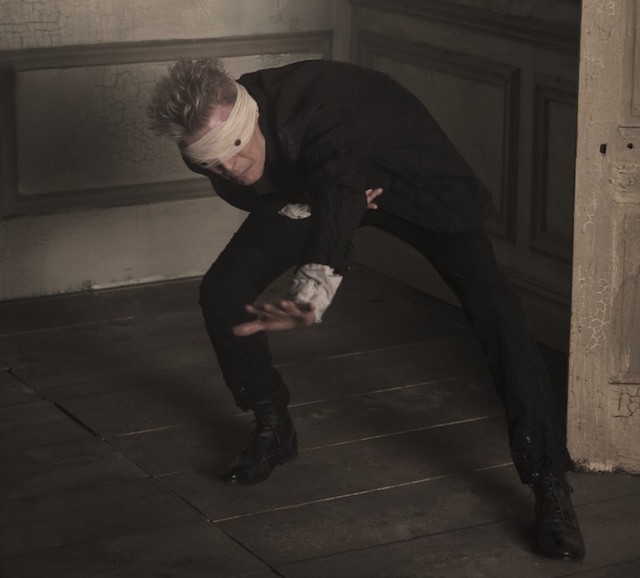David Bowie's New Album ★ Is Challenging And Thrilling
By Tankboy in Arts & Entertainment on Jan 8, 2016 6:50PM

David Bowie © Jimmy King
David Bowie may be the only elder statesman in rock still actively seeking out fresh ways to present his art.
Early reports speculated that his new album ★ (a.k.a. Blackstar), out Friday, was going to be a completely uncommercial work, bordering on free jazz. Bowie's last single, 2014's "Sue (Or in a Season of Crime)"—also included on Blackstar—did feature wailing jazz brass over a frenetic drum beat, so those reports seemed reasonable. But, as usual, Bowie confounded all predictions and made Blackstar as challenging as it is accessible.
Blackstar is 41 minutes, but it only has seven tracks, which means Bowie has plenty of time to push musical themes in several directions on a single track. And reports of a "free jazz" approach are somewhat supported, since Bowie uses New York City jazz combo The Donny McCaslin Quartet as his backing band. But even in an atmosphere based on improvisation, Bowie's hand reins in the squall.

'Blackstar'
Blackstar's self-titled opening track sets the template for what's to follow. Its atonal opening meanders before giving way to an ethereal, unmoored chorus. That then leads into a mildly funky, more conventional song structure at roughly the five-minute point in the ten-minute track.
By setting the template for what's to follow, it encourages the listener to go into the album without preconceptions. "'Tis A Pity She Was A Whore" follows, and it, along with "Sue (Or In A Season Of Crime)," showcases Blackstar's more daunting side. Both of the tracks feel like tornados of sound throwing the jazz combo against walls of thrashing noise, with Bowie caterwauling—but never losing control of his delivery—through it all.
It's not all pandemonium, though. Situated between the two aforementioned tracks is "Lazarus," a long, slow groove that draws the listener deeper into its warm embrace even as the it builds to a mellow crescendo. It's as if Bowie knows you need a second of decompression and he's taking pity on you.
Over the abrasive lurching rhythms on "Girl Loves Me," Bowie mixes anguished yelps of vocals with sing-song choruses. Spurred lyrically by snippets of language borrowed from Anthony Burgess' A Clockwork Orange, the tune feels like Bowie took a simple pop song and stabbed it repeatedly, creating a bridge leading into Blackstar's final sonic chapter.
And that final chapter sees Bowie slow down and return to more conventional song structures. "Dollar Days" and "I Can't Give Everything Away" are both pretty straightforward, mid-tempo pop numbers. Consider these the rinse cycle of a particularly vigorous musical scrubbing.
Lyrically, Bowie remains as inscrutable as ever, with jagged snippets of language driving listeners to create their own interpretations. Bowie hasn't gone so far as to re-introduce the Burroughs-inspired cut-up method employed on some of his earlier albums, but he's comfortable telling stories whose true meaning is only known to him.
By combining the spirit, if not the free structure, of a jazz quartet with Bowie's singular style, Blackstar showcases an artist still capable of making challenging work that feels of the now. Even 51 years after the release of his first single, he's still creating visionary work.